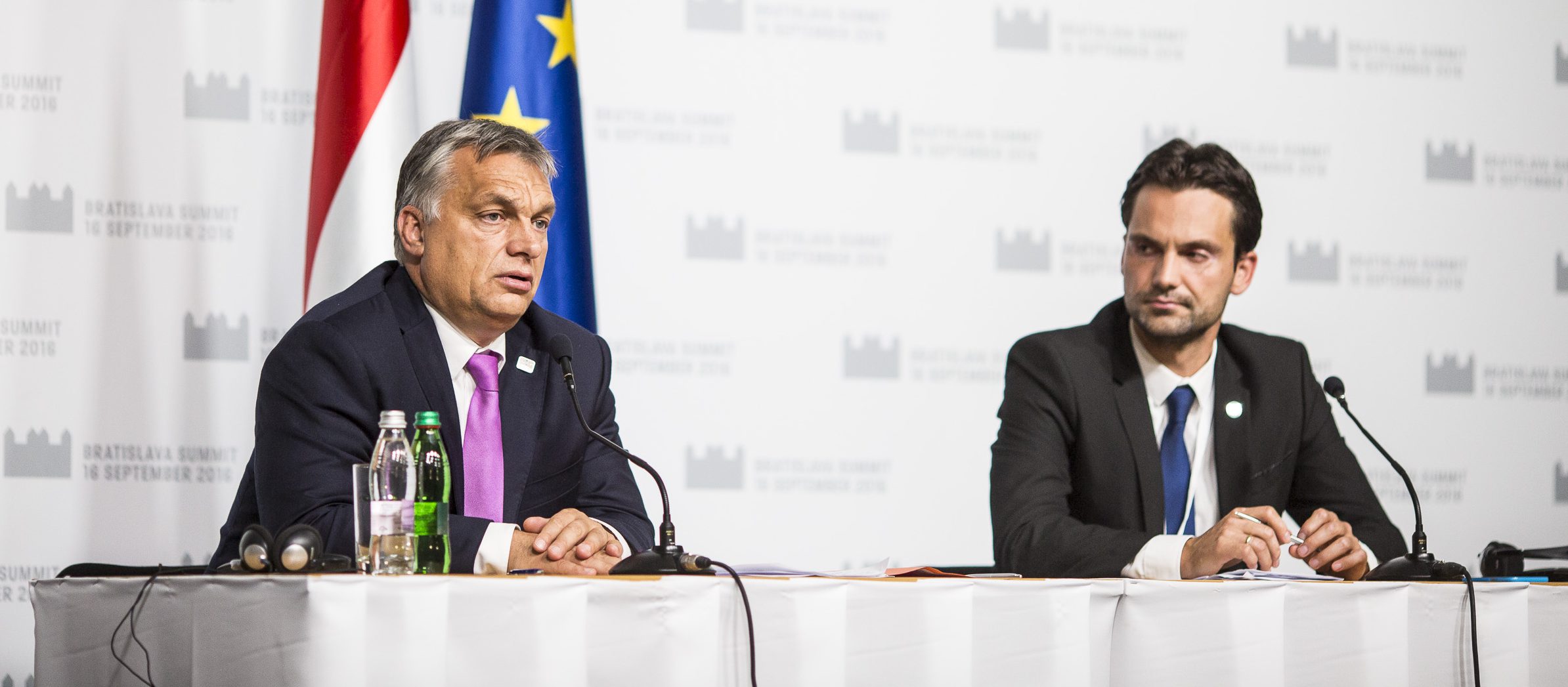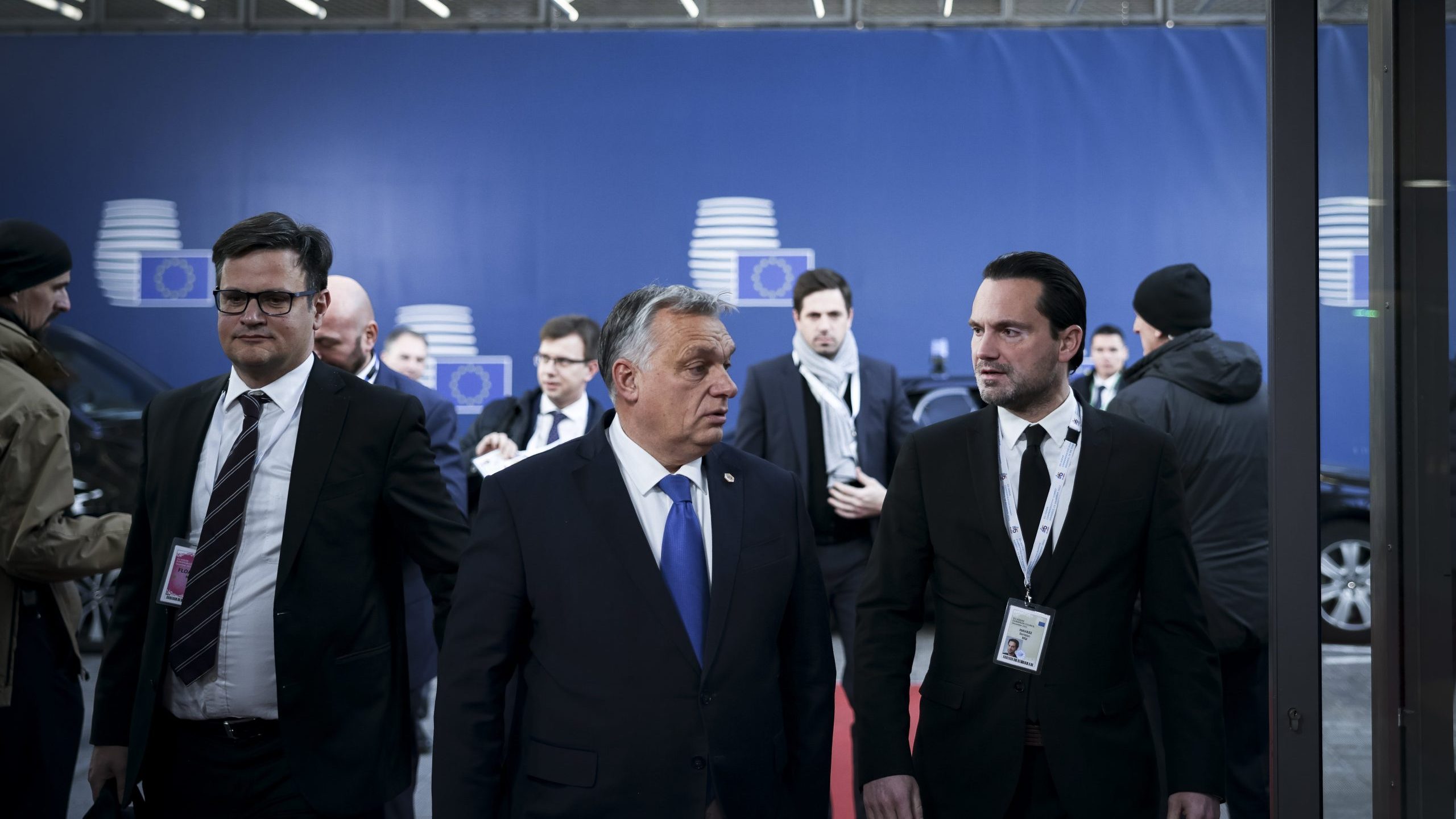
The Prime Minister said that the pre-existing “self-destructive and naive” immigration policy continues to prevail in the EU, and that on this occasion the summit had focused more on speeding up the process of distributing migrants across Europe than on stopping them at the border of the Schengen Area.
He said that failure to change EU policy at this summit will not be final, as another attempt could be made in Vienna on 24 September, when the countries lying on the Balkans route will also be consulted. There will be an attempt to convert the current flawed immigration policy to a policy of “self-defence”. He added that there is no way of telling whether this attempt will succeed, but a successful referendum in Hungary will mean that the country can do something to achieve a change in Brussels’ migrant policy.
Nevertheless Mr. Orbán described as an achievement the long-awaited decision to offer unconditional support to Bulgaria. As migration pressure on the Bulgarian border is increasing and the costs of defence efforts are significant, specific decisions were made on the assistance to be provided.
The Prime Minister believes that the best news from the summit is that the Visegrád Four (the Czech Republic, Hungary, Poland and Slovakia) was the only group of countries to come with specific proposals on the nature of a new EU: an EU which is more successful than at present, and in which everyone can benefit. This means that the meetings held by the prime ministers of the V4 in recent months were not in vain, he pointed out.
He said that a timetable has been approved which indicates the principal phases of the process, at the end of which the post-Brexit self-evaluation process will conclude in a document released in Rome next year. He added that the standpoint of the V4 – which is a clear one – will be decisive in this.
Germany and Greece are crucial to solving immigration situation
Mr. Orbán believes that Germany and Greece are the two countries which are key to finding a solution to the immigration situation. He said that there will be an ongoing pull effect on migration for as long as Germany sets no upper limit on the number of migrants to be let in. At the same time, he explained, the Schengen Agreement stipulates that Greece must stop people coming into Europe, but it is not doing this. He added that until these two countries change their policy, there is only one thing we can do: observe the Schengen regulations and use legal and physical measures to detain everyone trying to enter illegally.
The Prime Minister said that after the British decision to leave the EU the most important question from a Hungarian point of view is whether others will follow suit, and whether the EU will continue to move in the direction of disintegration. At the summit a favourable answer was given to this question, he said, when it emerged that no one else wants to leave the EU, that everyone has decided to continue together, and that instead of leaving they will try to correct the functioning of the EU’s institutional mechanism.
He said that he had made a proposal for the creation of a new policy related to non-EU Member States in the region, because tensions are rising and the EU’s material influence over events in the region is declining.
Mr. Orbán also said that military security forces will be required for the operation of “hot spots” outside the EU: migrant camps dedicated to registering asylum-seekers. Such forces are not yet available, and this is an important reason for Hungary’s advocacy of the creation of a European army. At the summit several countries gave firm backing for this idea: military cooperation must be enhanced, and this could lead to a joint army, he pointed out.
The Prime Minister said that in Europe today there is more than one way for us to show solidarity; it is a rather simplistic approach to say that those taking in migrants are showing solidarity, while those refusing to do so lack solidarity. In Europe today, he explained, one should instead pay attention to who is sacrificing what for Europe’s safety and security, who is spending how much and what efforts are being made to ensure that people in Europe live in greater security.
He said that Hungary is one of the countries showing the most solidarity, and if it were not protecting the EU’s external borders, other countries would be in great trouble. In an act of solidarity, Hungary is itself bearing all the costs associated with protecting not only itself, but also Europe’s other nations, he said.
The Prime Minister stressed that many in Brussels cannot clearly see that the migrant issue is not just a humanitarian issue, but that it also has implications for the identities of the countries to which migrants go and through which they travel. Hungary wants to preserve its identity, he added.

Answering a reporter’s question, Mr. Orbán said that at the summit Xavier Bettel, Prime Minister of Luxembourg, told him that his government does not share the view of Luxembourgish foreign minister Jean Asselborn, and he described his foreign minister’s statement as a minority view. (On Tuesday statements by Mr. Asselborn were released in which he said that Hungary should be expelled from the European Union temporarily or forever, as this would be the only way to keep the community together and preserve its values.)
In answer to another question, he pointed out that in conservative political terminology “cultural counter-revolution” means a return to roots. It means that we must return to the old European values which we have abandoned, and the departure from these traditional values is one of the reasons we are not successful enough.

